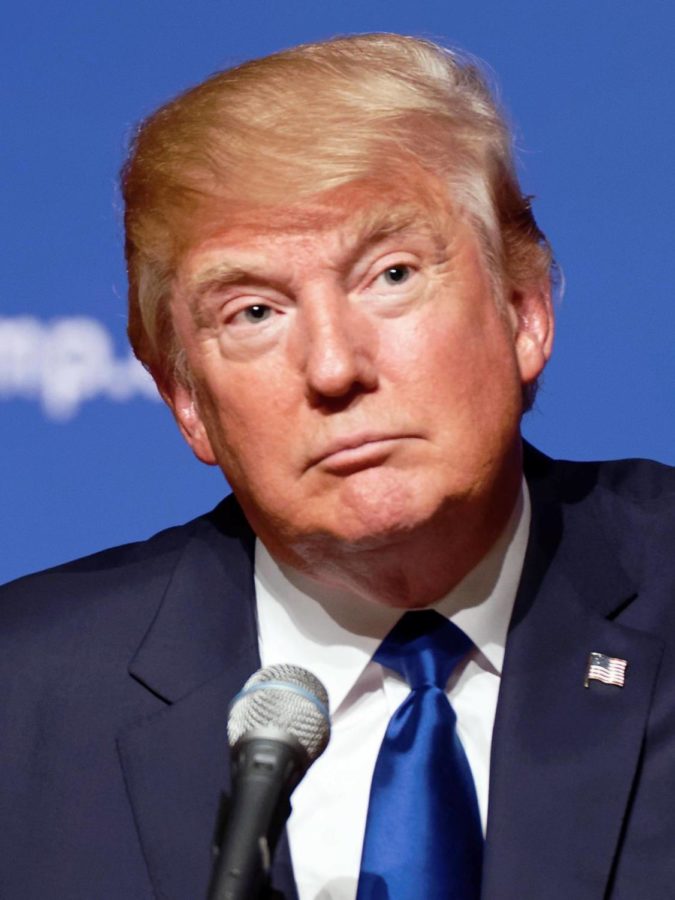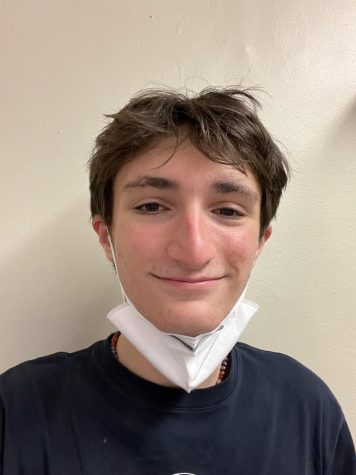The Trump impeachment inquiry
December 5, 2019
WASHINGTON, DC–The House of Representatives recently formalized the impeachment inquiry into President Donald Trump, capping off a rollercoaster ride which began around September 9th. A federal whistleblower came forward stating they’d heard a problematic phone call in late July between Mr. Trump and Ukrainian President Volodomyr Zelensky.
The reason why the two leaders were on the phone goes further back, all the way to 2014, when Hunter Biden, son of Democratic presidential candidate Joseph R. Biden Jr., joined Burisma, a Ukrainian oil/gas company. Trump and his staff have insisted that Hunter Biden, during his time with Burisma, committed crimes and wrongdoing, even though a May 2019 investigation by Yuriy Lutsenko, the former prosecutor general in Ukraine, exonerated Mr. Biden.
According to the whistleblower, they overheard Trump asking Zelensky to help dig up dirt on the Bidens to undermine their credibility in order to help him win the 2020 election. They were also threatening to withhold military aid to Ukraine if he didn’t follow his instructions.
So, what does the iSchool think?
Harrison Reinisch, a sophomore, doesn’t exactly approve of Mr. Trump. “I think he’s made America more divisive than it has to be,” Reinisch said. “I don’t hate everything about him but he does a lot of stuff I don’t like.”
Regarding the impeachment inquiry, Reinisch said he needs to see all the evidence first before making up his mind. “Right now it’s looking like he should be impeached,” Reinisch said, adding, “It depends further on the testimonies we get.”
Jesse Hoffman, a sophomore who considers himself part of the Democratic Socialists of America, also doesn’t approve of Mr. Trump. “It doesn’t matter if he’s impeached or not, he should pay for his crimes and go to jail,” Hoffman stated. Hoffman also believes Trump is using his position of power for his own benefit. “I think it’s absurd that Trump wanted to host the G7 summit at his own Florida resort,” he said, adding that it seems like a conflict of interest.
One counterargument against the impeachment of President Trump was floated by Lucas Kulin, a senior, who believes Trump did nothing illegal. “What he did was immoral and wrong, but I haven’t seen any law that says he can’t (have a quid pro quo),” Kulin said.
Quid pro quo is basically Latin for “a favor for a favor” or “I’ll scratch your back if you scratch mine.”
This is the main Republican defense for whatever happened on the call between Trump and Zelensky. Their defense basically says that although there may have been an implied understanding that Trump would withhold aid from Ukraine, since there were no direct agreements to this, no illegal or improper acts had been committed.
This stems from a 2010 Supreme Court decision, which ruled that unless quid pro quo bribery can be proven and explicit agreements were made, then there was no wrongdoing.
Kulin agrees with this. He said that in the trial, “there have only been rumors and no direct statements,” adding that according to current info, “the Ukrainians weren’t knowledgeable that military aid was being withheld.” Because of this, there, “isn’t a clear connection between them following a bribe or threat,” from Trump.
However, on the flipside, Kulin says this policy of apathy should change. There is no law against quid pro quo, but we “should write a new law so people can’t have a quid pro quo.,” Kulin said.
The general consensus of those who are in favor of furthering the impeachment inquiry and casting a vote is that no matter whether there was known quid pro quo or not, there’s still a violation of the Constitution, which poses a threat to our democracy. The argument of those against the impeachment inquiry argues that there wasn’t quid pro quo or at least it wasn’t known in the way the Democrats on the House Intelligence Committee say it is.
As of now, the House Intelligence Committee continues to compile witness testimony and evidence, and right now the constitutionality of the inquiry is being discussed, with a number of constitutional experts giving their testimony to the House Intelligence Committee.



